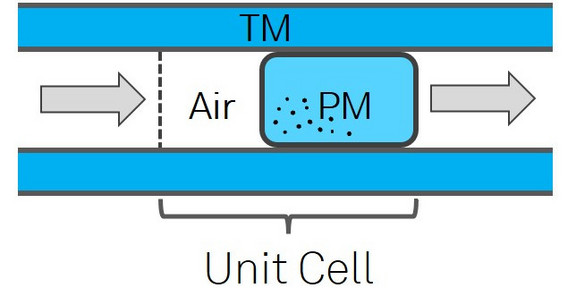Bachelor Thesis: Implementation of a Temperature Control Scheme for a Tubular Crystallizer
- Thesis offer

Introduction
Continuous crystallization offers several advantages over conventional batch crystallization in terms of operating costs, process control and flexibility. Usually, the objective of crystallization is to achieve a narrow crystal size distribution, which cannot be realized in conventional continuous crystallizers given the high degree of backmixing. One realization of a continuous tubular concept without backmixing is the slug flow crystallizer (SFC) [1]. Here, backmixing is avoided by segmenting the process medium using air slugs.
Process control is essential in continuous crystallization as it ensures consistent crystal size distribution and purity, which are critical for product quality. Temperature control is particularly crucial because it directly influences supersaturation levels. Precise temperature management minimizes variability, preventing issues like unwanted nucleation or fouling. This leads to efficient use of resources, reduced waste, and stable operation, ultimately resulting in high-quality crystalline products.
In this thesis, first, a model for the continuous phase of the slug flow crystallizer will be developed. Then, based on the model, different control algorithms will be investigated and implemented at the plant. Model predictive control (MPC) will be applied and compared to standard control techniques, such as PID.
Objectives
- Literature research on the SFC
- Modeling of the continuous phase of the SFC
- Implementation of different control structures for the model
- Implementation of the control structures on the plant
- Evaluation and comparison of the applied schemes
Prerequisites
- Experience in control, optimization and programming Is beneficial
- Python experience is beneficial
Literature
[1] Termühlen, Maren, Matthias Markus Etmanski, Ines Kryschewski, Anne Cathrine Kufner, Gerhard Schembecker, and Kerstin Wohlgemuth. “Continuous Slug Flow Crystallization: Impact of Design and Operating Parameters on Product Quality.” Chemical Engineering Research and Design 170 (June 2021): 290–303. doi.org/10.1016/j.cherd.2021.04.006
Other
Beginning: As soon as possible
Duration: 3 month full time
Your work will mostly be in English and you can communicate with your supervisor in English or German.
Please contact us for any further questions. We can discuss all details in a personal consultation.


